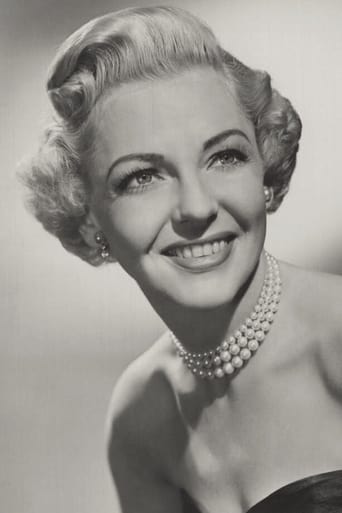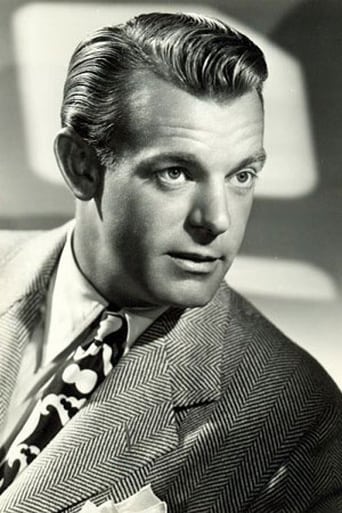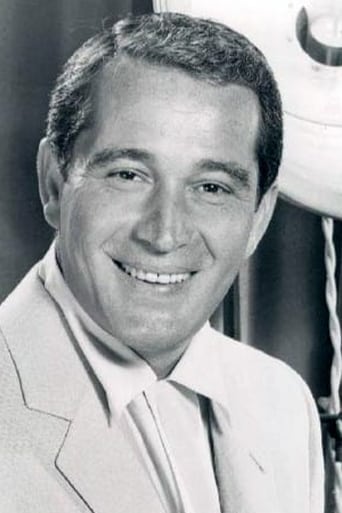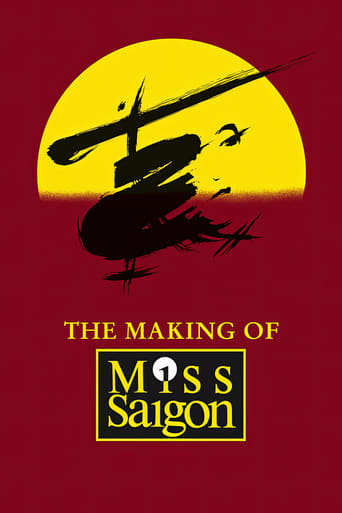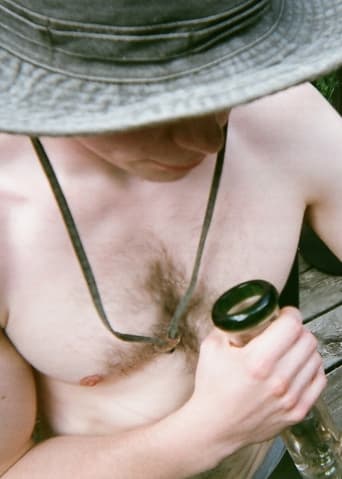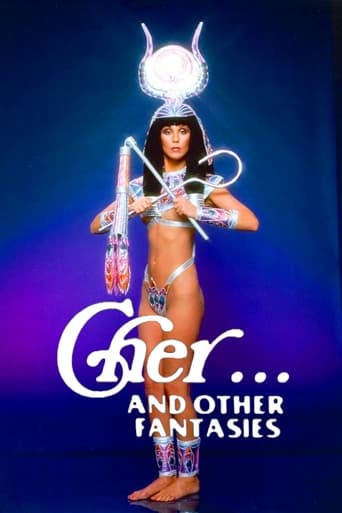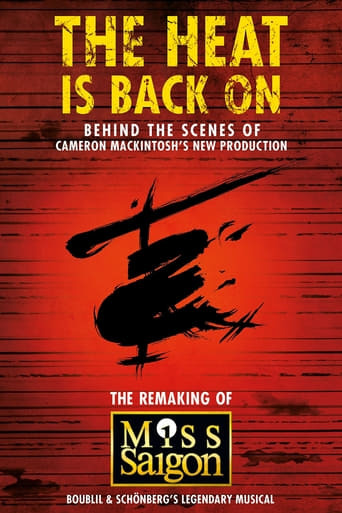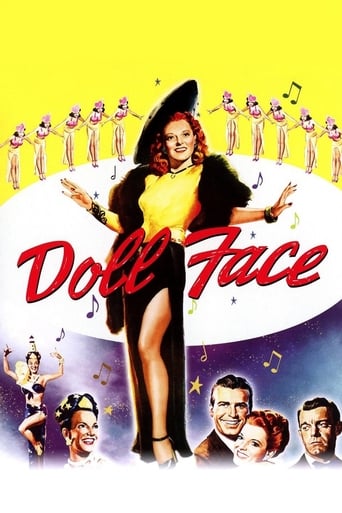
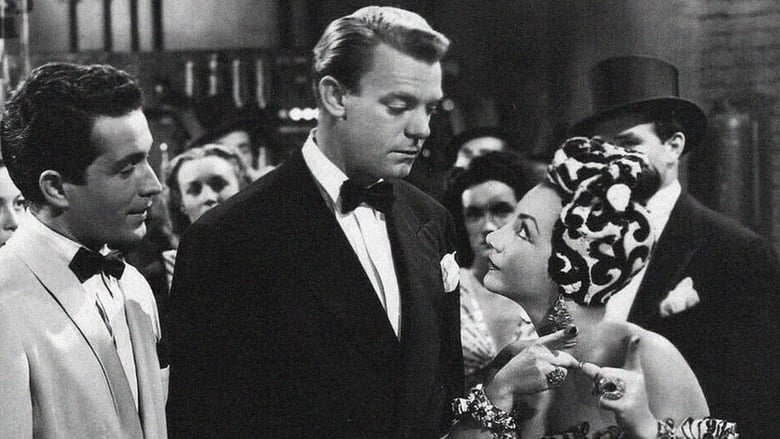
Doll Face (1945)
Burlesque queen Doll Face Carroll is dismissed from an audition for a legitimate Broadway show because she lacks culture. Her boss/manager Mike decides that she can get both culture and plenty of publicity by writing her autobiography. He hires a ghost writer to do all the work, but doesn't count on the possibility that Doll Face and her collaborator might have more than a book on their minds.
Watch Trailer
Cast


Similar titles
Reviews
"Doll Face" is a minor musical which would undoubtedly have enjoyed greater appeal if it had not been saddled with a repertoire of pleasant but totally unmemorable songs. Jimmy McHugh and Harold Adamson can certainly do much better than this.The script, alas, is also no more than routine - and even that is probably an exaggeration of its merits. Louise Hovick's stage play is that old chestnut about the guy who hires a male teacher for his fiancé and suspects the two are two-timing him!However, I must admit that if you're not expecting anything special and your mood is indulgent rather than critical, you will probably enjoy the movie to some extent. It is certainly enthusiastically played by a surprisingly good cast headed by Dennis O'Keefe, Vivian Blaine, Perry Como and Carmen Miranda.All in all, "Doll Face" certainly passes an agreeable - if unmemorable - 80 minutes.
The back of my DVD jacket features a large picture of Carmen Miranda wearing a lighthouse attached to a turban. Curiously, this doesn't appear in the film! However, there is an outtake on my DVD of Carmen prancing around on a burlesque stage in her signature platform sandals, a shimmering skimpy outfit, and this lighthouse headpiece, singing "True to the Navy", with a sailor group backup. According to this web site, somebody at Fox forgot to get permission from Paramount to use the featured song until it was too late to cut out some of the advance film publicity shots when Fox learned that Paramount refused to let them use their song. Thus, we are left with only one Carmen specialty number, and in B&W, whereas in her previous Fox films, she had 2 or 3 specialty numbers, all in gorgeous Technicolor. Her number : "Chico, Chico" is lively , with quite a few 'colorful' background characters. Carmen dances around in bare feet, in a Puerto Rican peasant market place-themed production. She wears a simple turban, but many of the extras have various imaginative headpieces. As in "The Gang's All Here", her changing background occasionally appears to greatly extend her headpiece. Actually, it's one of her best productions. Still, for a woman who practically singlehandedly induced Fox to start filming many of its musicals in color, it must have felt like a slap in the face to have her last 2 Fox musicals done in B&W, and to have, in her last 4 films, some of Fox's "B" musical stars, rather than her accustomed "A" team costars. Perhaps the thinking at Fox was that Carmen, as an established star, could guarantee an audience for films otherwise featuring their "B" leads. On the other hand, it was also true that the need to promote FDR's 'good neighbor ' policy toward Latin America was nearing its end, and the perception was that the novelty of Carmen's outrageous screen persona was beginning to wane with audiences. This is the 3rd of a series of 4 musicals released in 44-46, in which Carmen was teamed with new "B" musical leading lady Vivian Blaine, who basically replaces Alice Faye or Betty Grable in Fox's "A" team, getting to sing the romantic ballads and participate in the main romantic entanglements. Also, established singer, but newcomer to Hollywood, Perry Como was included in 3 of these films, as either primarily a singing specialist or a leading character in the plot. Here, it looks like they wanted him to be the leading romantic man, but knew his acting was stiff and bland, and he often looked sleepy. Hence, better when his screen time and role was limited, as in "Something for the Boys". He sings the slow ballad "Here Comes Heaven Again", once solo, and again with Vivian in the finale. He also sings twice the up tempo romantic piece "Red Hot and Beautiful", with female chorus. But, the hit of the film was the upbeat novelty "Hubba, Hubba, Hubba", also featuring Martha Stewart, in her film debut. A former band singer, Martha would remain a supporting actress in a limited Hollywood career. I remember her as a significant presence in the musicals "I Wonder Who's Kissing Her Now?" and "Are You with It?". At least she actually sang her songs, while some much more hyped actresses were mostly dubbed. After Perry sings his sleepy version of "Somebody's Walking in My Dream", she steps off a crescent moon in the background and does a sexy up tempo version. She again upstages Perry, following his staid 2nd rendition of "Red Hot and Beautiful", with an appropriate sexy version, while prancing around the burlesque stage in mimicry of Vivian's prior performance. Actually, I think she outdoes Vivian as well, being an excellent actress as well as singer. Incidentally, the Wikipedia site and this site fail to credit Martha with this performance, only mentioning Vivian's prior performance! I can't really fault any of the songs. Jimmy McHugh and Harold Adamson did a good job with the all original score. There weren't a lot of songs, so several were used several times, often by more than one soloist. That's better than more songs, but half stinkers!Returning to the hit "Hubba, Hubba, Hubba": Perhaps more than any other song of the times, it expresses the jubilation over the recent conclusion of WWII, thumbing their noses at the defeated Japanese, and telling the servicemen to go home, have some frivolous fun, then find a girl to marry, and get ready for a bright future. The expression "Hubba Hubba" was then in vague as an alternative to a 'wolf whistle', or to denote excitement about anything. In this production, both usages are evident. Vivian used it informally in her next film: "If I'm Lucky".As others have detailed, the screenplay is rather trifling and standard fare, with the lead female going back and forth between 2 men, and with the much repeated ambition to rise from low class performances to Broadway status. Unlike most of her other Fox films, Carmen doesn't have anyone with comedic talent to interact with. Too bad someone like Bob Hope, Red Skelton,or Phil Silvers wasn't included, as she had great comedic talent, given the right setup. Instead of comedy between the musical numbers, as in "Something for the Boys", we get mostly lackluster drama. Yep, the male leads and supports were all pretty faceless, save for Perry, and their romance with 'Doll Face' unconvincing. Nor does Vivian make a convincing stripper. If you have a DVD, fast forward between the musical numbers, and you won't miss much.
I started to read a fellow critique of this and stopped, but I too am writing this to let you Miranda fans that this isn't the movie for you, if you want Carmen, Carmen, and more Carmen! She sings one song I think in this movie based on a book written by Louise Hovick AKA Gypsy Rose Lee. You see, there's this stripper, played by Vivian Blaine, who can't get a job out of the business to go legitimate, because, in auditions when they find out who she is, they don't want an ex-stripper in their stage play/musical. So, she and her boyfriend/manager Dennis O'Keefe decide she needs to write a book to get respect and hire a ghost writer to help her.Perry Como is on hand with his smooth voice, but while the movie has its moments, there aren't enough good songs or Miranda to get really excited about or to really recommend it.
I came across this movie only as an inclusion in the Carmen Miranda Collection, and I am commenting here for those in the same situation, who are wondering if this is worth having.As for Carmen: she sings one number, "Chico Chico (from Porto Rico!)", which features a lot of dancing with the chorus. The main drawback as far as Carmen is concerned is that the film is in black and white, and we are deprived of some of the gaudiness and festiveness that we expect from her participation in a movie. I know that Technicolor was expensive, but it seems bizarre for Fox to have made black and white musicals after the public came to expect color, and to cast the colorful Carmen Miranda in them! A better number was excised from the movie, but included in the Special Features --- Carmen wears her famous outfit with the phallic lighthouse atop her head (which lights up on the downbeats at the end of the song), and the number is done in a burlesque style on a runway. Carmen gets quite a bit of dialogue in this movie, and is actually integrated into the plot, not just a nightclub performer as in some films (like "Down Argentine Way"). I wish she were given more musical numbers to do, though. One funny bit (five seconds long) has Carmen's character, "Chita," disparagingly mimic Carmen Miranda! The movie itself is watchable and has some fun moments, but on the whole suffers from a bland cast. Vivian Blaine lacked the spark of an Alice Faye or Betty Grable, the other Fox stars of the day, and came across as brittle and not particularly likable. The leading men, including Perry Como, were also uninteresting, and there is even a misogynistic undertone to the movie, with male characters bragging about beating their girlfriends to keep them in line. There is something wince-inducing about seeing bland Perry Como threaten to beat his girlfriend, who gets turned on by it! As for the music, there are a couple of serviceable numbers, but they are reprised to death -- I found myself muttering "oh no, not this one again" by the middle of the movie. Como and Blaine's "Hubba Hubba" duet was the only number which for me was fresh and fun, and not overdone.In general, this is not a terrible or unpleasant film, but is not one many would want to rewatch. As another commenter noted, the melodrama seems to take over at times, and for me, the characters are not sympathetic or likable enough for me to get drawn in by the non-musical aspects of the plot. If you are wondering whether this adds anything of value to the Carmen Miranda collection --- in my opinion, it is only a very minor addition.


